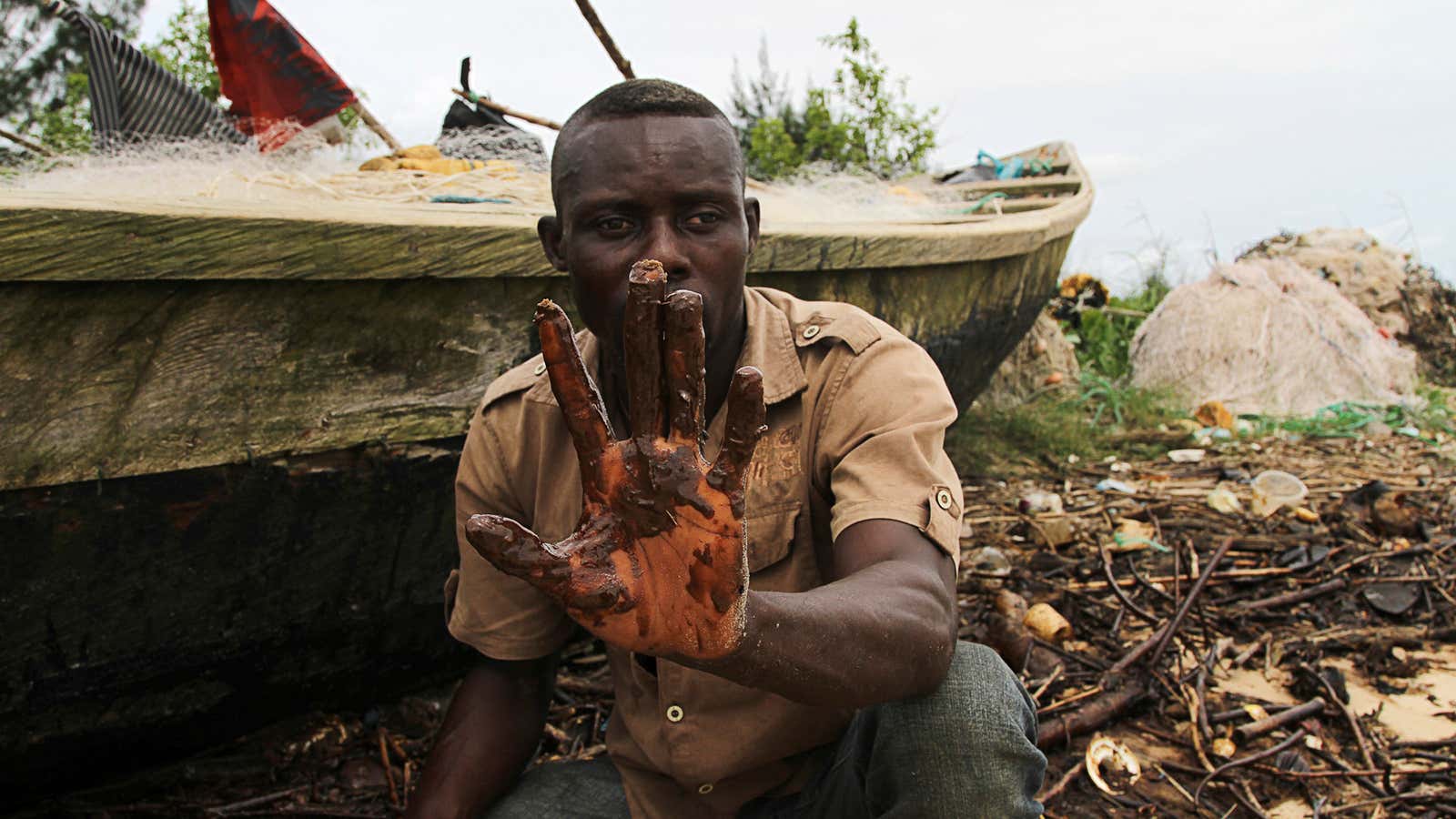Next year will mark the 60th anniversary of Shell’s discovery of oil in Nigeria’s Delta region. It could spend the next 30 years–and billions of dollars–cleaning up a devastating environmental mess it’s said to have left in its wake.
Shell Petroleum Development Company this week signed an agreement with Nigeria’s Bodo community to begin clean-up operations of two major oil spills from back in 2008. Dutch newspaper Volkskrant reported (in Dutch) that the estimates for the clean-up costs would be up to $500 million and take ten years.
The Anglo-Dutch oil company had already agreed in January to pay out £55 million ($84 million) in settlements to the Bodo community for the devasting effects of the spill.
But Bodo, home to 40,000 people, is just one of tens of communities in the Delta region devastated by the environmental damage to their livelihoods as farmers and fishermen.
Amnesty International warned Shell investors last week that despite the company’s billion dollar earnings, it could be faced with significant costs for clean-up operations and compensations in the Niger Delta owing to various oil spill incidents.
“Investors must beware the hidden costs that await Shell from its Niger Delta operations. For decades the multi-national oil giant has failed to stop the oil spills, or clean up the devastating pollution that has destroyed lives and livelihoods,” says Mark Dummett, Business and Human Rights researcher at Amnesty International in a press release. Shell posted $14.9 billion in profits in 2014.
Clean-up operations are deemed generally expensive for oil companies. The 2010 Deepwater Horizon oil spill cost BP as much as $14 billion. Amnesty’s report estimates the potential cost of a five-year clean-up operation of just Ogoniland alone could be as high as $1 billion. It also estimated the length of a full clean-up operation of oil pollution in the area could last as long as 30 years running into multiple billions.
The warnings from Amnesty are ominous as Shell has reported multiple spills since 2009 but the company insists that more than 70 percent of spills from its facilities have been a result of sabotage and theft rather than human error or equipment failure.
This April, Shell’s Oil Spill Incident Data revealed that all four spills were caused by sabotage and theft. However, Amnesty International describes Shell’s oil spill investigation process as ‘flawed’.
One of such April spills in Otuasega, Bayelsa state has become a subject of controversy as some affected farmers and fishermen claim that despite visible damage done to their farms, attempts to get a Joint Investigation Visit to determine the extent of the damage and schedule a clean-up exercise have proven futile. However, in response to these claims, Shell’s Head of Media Relations, Precious Okolobo said the company was not liable for damage caused by sabotage.
